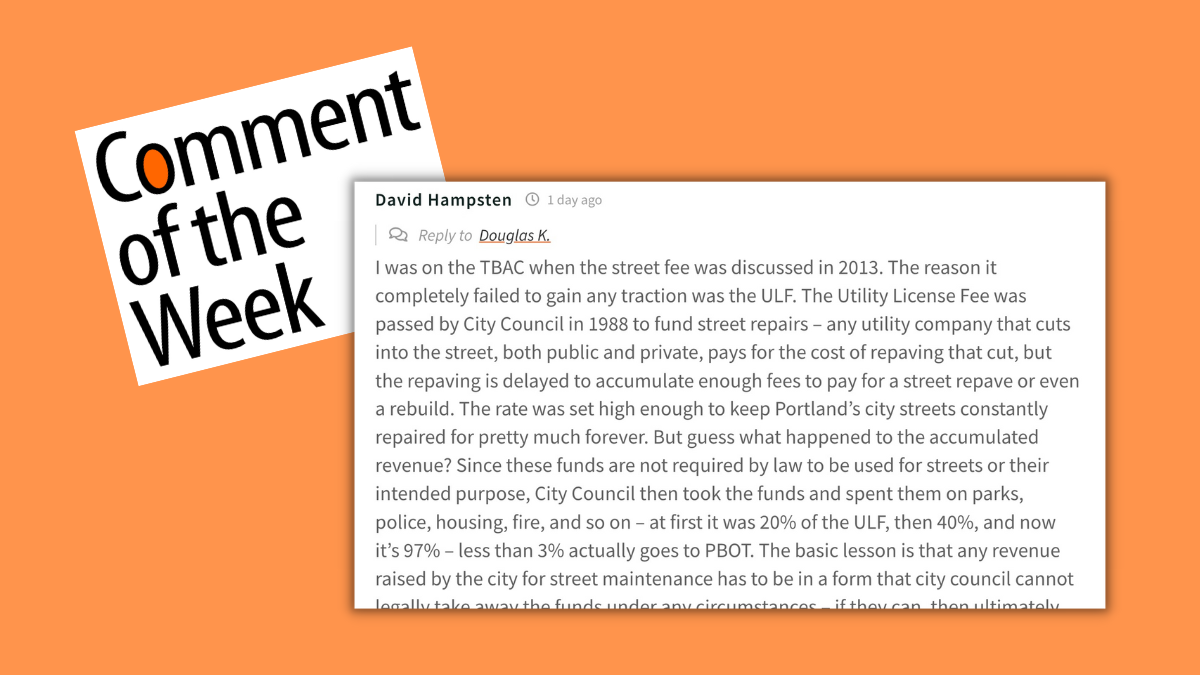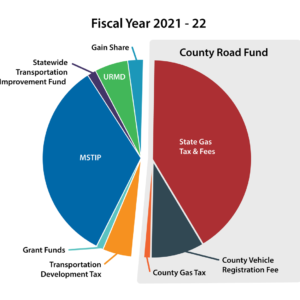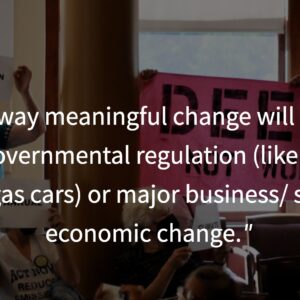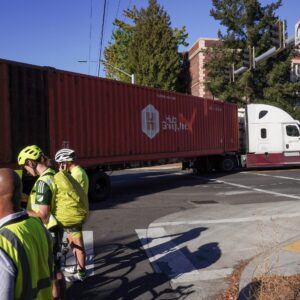Welcome to the Comment of the Week, where we highlight good comments in order to inspire more of them. You can help us choose our next one by replying with “comment of the week” to any comment you think deserves recognition. Please note: These selections are not endorsements.
I like comments which make me work and David Hampsten delivered again. This time with historical insight on Taylor’s recent transportation funding woes post.
David served on the Transportation Budget Advisory Committee (TBAC) over a decade ago (now called the Bureau Budget Advisory Committee) and he has a deep knowledge of Portland Bureau of Transportation (PBOT) funding difficulties. Nevertheless, I decided to minimally fact check his comment and ended up spending a wonderful couple of hours reading of decades-old policy debates and looming transportation budget crises.
Unfortunately, this 2011 warning from the TBAC to the Mayor and City Council still holds: “The challenges facing PBOT in the development of a multi-modal transportation system in the City are significant. The resources available are extremely limited.”
Here’s what David had to say about the hapless history of transportation funding in Portland:
I was on the TBAC [Transportation Budget Advisory Committee] when the street fee was discussed in 2013. The reason it completely failed to gain any traction was the Utility License Fee. The ULF was passed by City Council in 1988 to fund street repairs – any utility company that cuts into the street, both public and private, pays for the cost of repaving that cut, but the repaving is delayed to accumulate enough fees to pay for a street repave or even a rebuild. The rate was set high enough to keep Portland’s city streets constantly repaired for pretty much forever.
But guess what happened to the accumulated revenue? Since these funds are not required by law to be used for streets or their intended purpose, City Council then took the funds and spent them on parks, police, housing, fire, and so on – at first it was 20% of the ULF, then 40%, and now it’s 97% – less than 3% actually goes to PBOT.
The basic lesson is that any revenue raised by the city for street maintenance has to be in a form that city council cannot legally take away the funds under any circumstances – if they can, then ultimately they will do so, usually sooner rather than later – and so raising the gas tax was the only reasonable and viable alternative given council’s long-term misbehavior.
Interestingly, Washington County currently is finding itself in a similar situation to what David describes above, although through a different funding mechanism. Still, his warning and advice applies.
Thank you David Hampsten. You can find David’s comment and the rest of the discussion under the original post.








Thanks for reading.
BikePortland has served this community with independent community journalism since 2005. We rely on subscriptions from readers like you to survive. Your financial support is vital in keeping this valuable resource alive and well.
Please subscribe today to strengthen and expand our work.
This anecdote just goes to show that all money is fungible; dedicated funding streams are not entirely real, but they sure feel good. (See also measure 110’s dedication of marijuana revenue, which in effect transferred school funding to drug treatment (which we’re paying for but never actually got) and left a hole in the state budget that had to be filled from elsewhere; maybe it would not have been so popular if proponents had been honest about how it would defund schools).
I wonder if a repeal of 110 was on this upcoming election ballot, would it have passed? I’d guess there are more than a few 110 voters with buyers remorse after seeing how it was implemented, that would like to change their vote
I just don’t understand why people would change their mind on something like that. I don’t doubt it, but it’s just strange. To me it’s a moral issue. There is no moral justification for making drug use a “crime” the way other parts of the country do it, in my opinion. That has never made any sense to me for basically my whole life. It is a public health problem, not a crime. We don’t criminalize other unhealthy things. We don’t make it illegal to eat unhealthy food.
Don’t get me wrong, the failings of how 110 was implemented are serious, but I will never stop fighting to keep drug use decriminalized.
I would still support 110 if the legislature had waited until after the treatment programs were up and running before passing the legalization part of the bill. I feel like we struck a bargain, and then got the shaft. It may also turn out that you need legal compulsion to get people to take up the offer of treatment.
Legalization without robust treatment options has been a disaster.
M110 for me is one of the most spectacular examples of the general population’s inability to parse cause and effect, or even maintain a memory of yesteryear. There’s this very simple narrative that what we see on the streets today is a result of M110, but as someone (like most of you, I presume) who was looking at the streets before M110…it kinda already looked like this. Directionally, we’ve been heading this way since neoliberalism/”socialism” for the rich/rugged individualism for everybody else became the dominant governing theology in the 70’s (and embraced by every administration and congress since). Turbocharged, lest we forget, by a worldwide and economically devastating pandemic. Not to mention several notable economic collapses in the last couple of decades.
But ah man, it’s got to be M110.
It’s always worth reiterating that M110 decriminalized (not legalized, to correct Watts – there’s still a civil penalty attached) one behavior: Small quantity possession (and thus use) of drugs. It did not decriminalize theft, drug dealing, violent acts, destruction of property, improper use of motor vehicles, etc. Those could all still be enforced today if we had a functional justice system. Which we don’t.
That’s all to say, we could repeal M110 tomorrow and it would make virtually no difference. Police could be arresting folks for those other crimes today, but will point to the DA as the reason they won’t. The DA will point to the police’s evidence gathering as the reason why his office can’t act. Both of those are probably beside the point until Oregon ponies up whatever amount of money is required to adequately staff public defenders (which given that’s a federally constituted right, should probably be paid for by the federal government, but all three branches on that front are so anemic and corrupt I expect complete collapse well before anything resembling functional governance – so we’re on our own there).
That’s all to say: I agree with John. Morally and pragmatically, re-criminalizing drug use is not the way forward. It will not produce the outcomes M110’s opponents think it will.
Yeah, that’s absolutely all true. It’s a recency bias (among other biases). Whatever change happened last gets blamed for everything. I added that line about the “failings” of 110 because as I understood it there was supposed to be some major emphasis on treatment which I don’t think materialized. But if that’s true, it’s something that should be fixed, not take steps backwards criminalizing a health problem.
This is one of those things that always drives me crazy too. The stuff that people complain about re: crime is stuff that was and still is illegal. People don’t like theft, violence, harassment. This stuff didn’t get decriminalized, so you can’t explain it by the M110 boogeyman.
The more discussion around these topics I see, the more this appears to be the actual root cause (well, there are other causes, that gets hard to define). People are mad that the police can’t round people up arbitrarily and have them summarily sentenced to years in prison without a trial, and that’s just not going to happen.
It’s also funny because the most anti-110 folks are also banging the drum about PPB being under-resourced and the revolving door at the jail. I guess the operating assumption is that an under-resourced police force that can’t respond to violent crime, theft, street racing or other dangerous driving can and should shift what little resources they have to misdemeanor possession crimes that carried little to no jail time before M110. And that’s gonna be a game changer.
It really is folks just ignoring the obvious. The rest of the state is getting better. Portland is getting worse because we allow people to come here and do literally whatever they want.
I’m surprised we haven’t seen a citizen-initiated measure to reverse 110 at this point. I guess there isn’t enough money to get it going.
Speaking of road repairs, can everyone start carrying a can of white spray paint and circle the pot holes when they bike? I rode Skyline and Germantown Rd from Burnside in the sunshine last week and feared that I would go down at high speed from hitting a pot hole hidden by the shadows of the trees! It felt like there were hundreds of them!
There probably were hundreds of them.
This seems to get results:
https://www.boredpanda.com/wanksy-penis-pothole-graffiti-manchester-england/
This kind of de-funding of politically popular priorities (like road repair) is maddening. It’s the reason voters passed the Arts Tax. In this issue and others, it consistently seems like the voters’ intent only makes it to policy at a slant. I can only hope that the new form of government will provide a more responsive form of government.